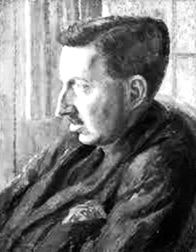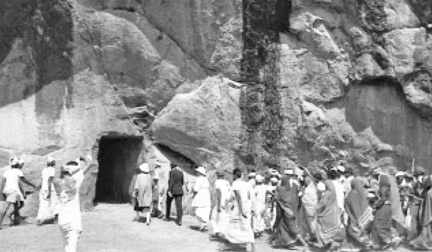|
E.M. Forster :
Strong believer in tolerance and diversity
by W.T.J.S. Kaviratne, Ambalangoda Special
Correspondent
 Edward Morgan Forster was an English writer born at Malcombe Place,
Dorset Square , London in 1879. In addition to novels he had written
many short stories and essays. Edward Morgan Forster was an English writer born at Malcombe Place,
Dorset Square , London in 1879. In addition to novels he had written
many short stories and essays.
Forster was the only child of Alice Clare and Edward Morgan Llewellyn
Forster who was an architect.
Forster had depicted class discrimination and the hypocrisy of the
contemporary British society of the 20th century in his writings.
Forster first attended Tornbridge School and later joined King's
College, Cambridge and became an active member of a discussion group
known as 'Bloomsbury Group.'
Just after his university career in Cambridge he made tours across
Europe and in 1914 he visited Egypt, Germany and India and he became a
volunteer in the International Red Cross and served Alexandria, Egypt.
During his second visit to India in 1920 he became the Private
Secretary to Maharaja Tukojiro 111.
Based on his period under Maharaja Tukojiro he wrote an account
called 'The Hill of Devil'.
On his return to England from India he complied the award-winning and
internationally acclaimed novel 'A Passage to India' in 1924.
Since his first novel 'Where Angels fear to tread' compiled in 1905
Forster had written a series of novels and short stories. 'The Longest
Journey' (1907), 'Howards End' (1910) and
'A Room with a View' (1908), 'Maurice' (1971) on the theme of
homosexuality was published posthumously.
The most famous short stories written by Forster are 'The Machine
Stops'(1909), 'The Celestial Omnibus' (1916), 'The Eternal Moment'
(1928), The Classical America and 'The Other Boat.'
Settings
The settings of both the novels of 'Where Angels Fear to Tread' and
'A Room with a View' are Italian. These novels depict the narrow -
minded middle class British tourists and their behaviour pattern abroad.
Forster had been influenced by literary luminaries such as Samuel
Butler, Jane Austen, Thomas Hardy and D.H. Lawrence.
Humanism was one of the themes of Forster and it was vividly
portrayed in his first novel Where the Angels Fear to Tread.
Similar themes are also found in Forster's short stories such as The
Celestial Omnibus and The Eternal Moment.
Diverse strata of society prevailed in the Edwardian era of England
were represented by Schlegels the Wilcoxes and Basta in Forster's
popular novel of ' Howards End'.
Horwards End is a closely knit novel centred on the lives of two
sisters both of them having intense individuality.
Schlegels in ' Horwards End' represent the Bohemian Intellectuals,
the Wilcoxes portray the mindless plutocrats while the Bates represent
the struggling lower-middle class.
Connectivity
The oldest sister Margaret represented the Schlegels and she played
the key role of linking the classes together. Forster's aim was to
promote connectivity among classes irrespective of social and economic
barriers.
Forster had analysed a diversity of themes relevant to humanity and
society with special relevance to England and its colonial
administration .
|

The ‘Marabar’ Caves: The Dark Heart of E.M. Forster's A
Passage To India |
An analytical study of Forster's novels and short stories reveals
that he had exploited a variety of themes such as class, mysticism,
repression, British colonialism, sexual orientation ,
individualism, humanism and Orientalism in his writings.
In his last novel 'A Passage to India' Forster had depicted an
authentic picture of the Indian Independent Movement as he was fully
aware of the nature and the root causes of the conflict
between the British Raj and the perpetrators of the Indian
Independent Movement.
Friendship
In the three sections of A Passage to India Forster highlights the
friendship existed between the characters of Aziz and Fielding.
The founder of the Muslim Anglo-Oriental College in Aligarh was Sir
Syed Ahmed Khan and his grandson Syed Ross Masood happened to be the
first contact of E.M. Forster in India.
The literary critics believe that the friendship that existed between
Forster and Syed Ross Masood culminated in compiling the most popular
novel A Passage to India.
Forster alludes the three sections of the novel to the Indian seasons
of the year.
The section 'Mosque' in A Passage to India is relevant to Muslim
Independence and depicts the season of Spring and portrays 'emotional
nature of man' and the section 'Cave' depicts the season of Summer and
portrays the 'intellect of man'.
The section 'Temple' depicts the season of Autumn and portrays man's
the devotion of love.
Forster has sympathetically portrayed the complicated Indian reaction
to British colonial Administration while depicting diverse facets of the
pluralistic society of India.
In the section of Caves in A Passage to India Forster has given a
vivid narration on the natural landscape surrounding the Marabar Caves
with reference to the Geological and Prehistoric origins of Himalayas.
Picnic
Dr. Aziz who arranged the picnic to Marabar Caves had to resolve a
series of issues relevant to religious taboos connected to food and
alcohol. Dr. Aziz took great pains in selecting food and
beverages and he was highly sensitive to the different religious
beliefs.
The portrayal of characters in A Passage to India imply that Forster
was a staunch believer of tolerance of diversity.
Marabar Case ignited the racial feelings City of Chandrapore. Forster
had been identified as a homosexual and the majority of the plots of his
writings were based on homosexuality.
He had extolled the virtues of homoerotic love and desire was supreme
on comparison to heterosexuality.
Hollow convention
Forster tried to convey the message that marriage was a hollow
convention and allied to the pressures of 'propagation.'
He believed that the institution of marriage had promoted the
alienation between man and man and distanced each other.
Forster's posthumous novel Maurice has been identified as explicitly
a novel centred on homosexuality.
In the majority of his novels Forster has exploited the metaphor of
'journey' as a literary device to shift the setting of the plot to a
region having a congenial atmosphere beyond the contemporary England
where relationship between men were frowned and considered incompatible
with the socially accepted conventions and norms.
Forster's negative attitude towards women is evident on an analysis
of his novels.
The physical descriptions of women characters in his novels were less
attractive.
Desires
Critical analysts of Forster's writings , the desire of visiting
other countries such as Italy and India was just to satisfy his inherent
homoerotic desires.
Homesexuality was made illegal in 1885 - 1967 in England under
criminal law.
The prohibition triggered the mass exodus of homosexuals in England
seeking better pastures where homosexuality was tolerated.
Forster was highly inspired by the orientalism and the magic of the
East.
H.M. Smith in his article on 'Foster's Humanism and the 19th Century'
quoting Forster says, "We manufacture everything except men, we bland
cotton, strengthen steel, refine sugar and shape pottery, but to
brighten, to strengthen to refine or form a single living spirit never
enters into our estimate of advantage."
In 'A Passage to India', the character Fielding plays the role of
Forster in conveying the universal message on the value of humanism.
Frederick C. Crews on his critical analysis of A Passage to India
highlights helplessness of man in a hostile universe. 'in such a hostile
and unpredictable world, a world torn apart with chaos and mystery how
can humanistic values flourish? This had been a question constantly
baffled Forster.
Three male characters of The Longest Journey were of the opinion that
the universe was hostile to humanity.
The political situation prevailed in India provided Forster the
background to highlight his major theme of friendship in writing ' A
Passage to India.'
Hill of Devi, a short story based on India, reveals the profound
knowledge of Forster on Hinduism and Bhagvad Gita.
In Room with a View, based on a young woman and her first visit to
Florence, Italy at a time when upper middle class English women were
enjoying independent and adventurous lives. |

